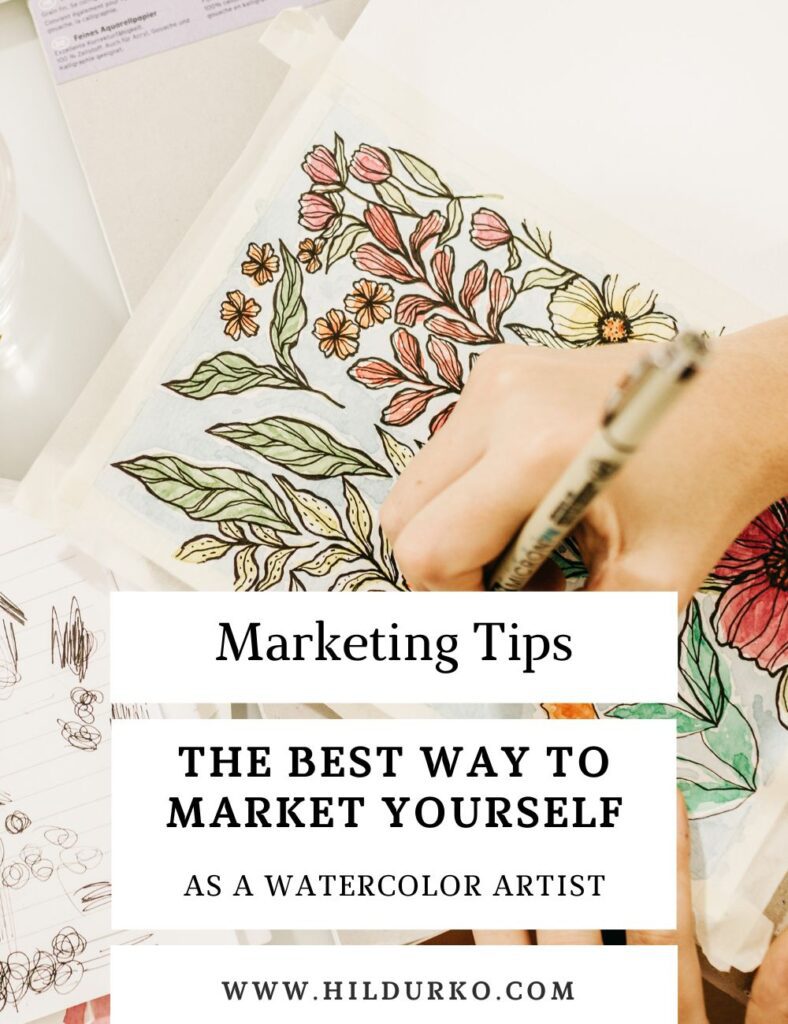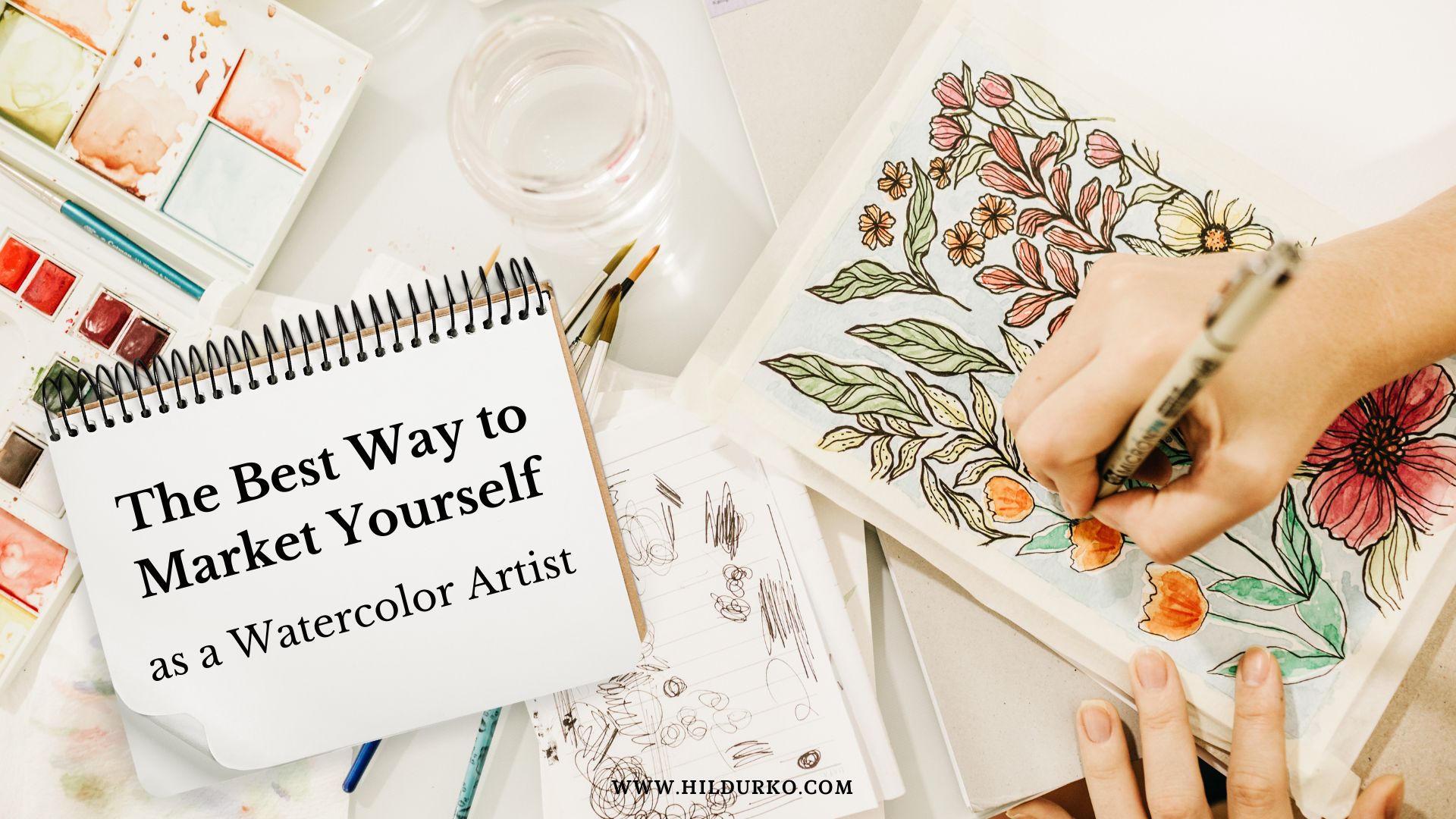In today’s digital age, marketing yourself as a watercolor artist requires more than just talent and creativity. It demands a strategic approach to showcase your work and connect with the right audience. Discover the secrets to effectively marketing yourself as a watercolor artist, ensuring your art not only gets seen but also appreciated and purchased.*
Introduction to Marketing for Watercolor Artists
Watercolor painting, with its ethereal qualities and luminous transparency, holds a unique place in the art world. However, many talented watercolor artists find themselves at a crossroads when it comes to marketing their art. In this digital era, where every artist has the opportunity to showcase their work online, standing out requires a mix of traditional techniques and savvy digital marketing strategies. This guide will navigate through the essential steps to effectively market yourself as a watercolor artist, ensuring your voice is heard in the vast art community.
Understanding Your Unique Artistic Voice
Your journey to successful marketing begins with a deep understanding of your unique artistic voice. Watercolor artists often capture emotions, stories, and moments in time with their brushstrokes. Reflect on what themes, subjects, or techniques define your art. Are you drawn to landscapes, abstract expressions, or detailed portraits? Identifying your niche not only helps in creating a cohesive portfolio but also in attracting an audience that resonates with your work.
Identifying Your Target Audience
Knowing your audience is as crucial as knowing your art. Your target audience might include art collectors, enthusiasts, decorators, or even other artists. Understanding who you’re speaking to will guide your marketing efforts, from the language you use to the platforms you choose. It’s about creating connections with people who will be moved by your work.
Building an Online Presence
Creating a Captivating Website
Your website is your digital gallery, a place where your audience can immerse themselves in your watercolor world. Ensure it reflects your style and is easy to navigate. High-quality images of your work, a compelling artist’s statement, and contact information are essential.
Leveraging Social Media Effectively
Social media is a powerful tool for artists, providing a platform to share their work, process, and personality.
- Instagram: Perfect for visual storytelling, use Instagram to showcase your portfolio and share glimpses of your creative process.
- YouTube: A channel to share longer-form content, such as time-lapse videos of your painting process, can deepen your audience’s connection with your work.
- Pinterest: Ideal for reaching people seeking inspiration, Pinterest can drive traffic to your website and online store.
Networking and Collaboration
Collaborating with Other Artists and Brands
Collaborations can introduce your work to new audiences. Whether it’s a joint project, a workshop, or a social media takeover, working with others can bring fresh perspectives and opportunities.
Participating in Art Fairs and Exhibitions
Physical exhibitions and art fairs offer the chance to meet collectors and enthusiasts face-to-face. These events can be a valuable platform for networking and selling your work.
Selling Your Artwork
Setting Up an Online Store
An online store makes your work accessible worldwide. Platforms like Etsy, Shopify, or integrating a shop on your website can be effective ways to sell your paintings, prints, and merchandise.
Pricing Your Artwork Correctly
Pricing is a delicate balance between valuing your effort and understanding the market. Consider your time, materials, and the uniqueness of each piece. Researching how similar artworks are priced can provide guidance.
Engaging with Your Audience
Crafting an Engaging Story Around Your Art
Every painting has a story, and sharing these stories can create emotional connections with your audience. Blog posts, social media captions, and newsletter stories can all be avenues to share the inspiration and process behind your work.
Collecting and Utilizing Feedback
Feedback, whether from customers or peers, is invaluable. It can provide insights into your audience’s preferences, helping you tailor your future work and marketing strategies.
Utilizing Traditional Marketing Techniques
Even in the digital age, traditional marketing techniques like press releases, media coverage, direct mail, and local advertising can be effective, especially for reaching a local audience or niche markets.
Continuous Learning and Adaptation
The marketing landscape is ever-evolving, and staying informed about the latest trends and tools is crucial. Regularly reviewing and refining your strategies based on performance analytics and feedback will help you grow your reach and impact.
FAQs
Before wrapping up, let’s address some frequently asked questions about marketing as a watercolor artist.
1. How often should I update my website and social media?
2. Can I sell my art without a website?
3. How do I price my art for the first time?
4. What are the best social media platforms for watercolor artists?
5. How do I protect my art online?
6. What is the most effective way to network as an artist?
Conclusion
Marketing yourself as a watercolor artist in today’s digital landscape is a journey of creativity, strategy, and persistence. By understanding your unique voice, building an engaging online presence, networking, and continuously learning, you can connect with your audience and turn your passion into a thriving career. Remember, the key is not just to showcase your art but to tell the story behind each piece, making every brushstroke resonate with your audience.
LIKE THIS POST?
Share the link on your social media
or pin the image below to your Pinterest board!




